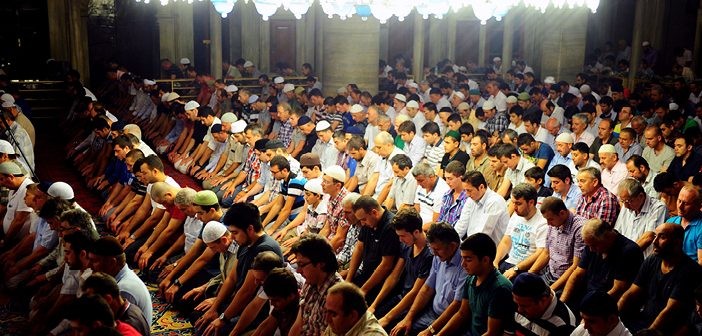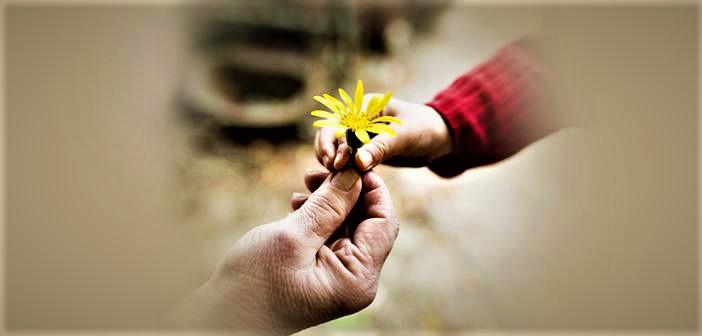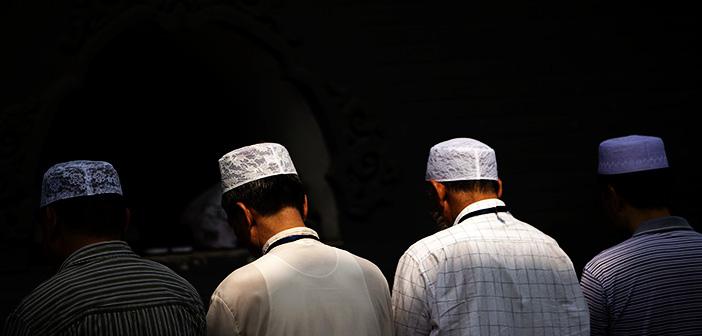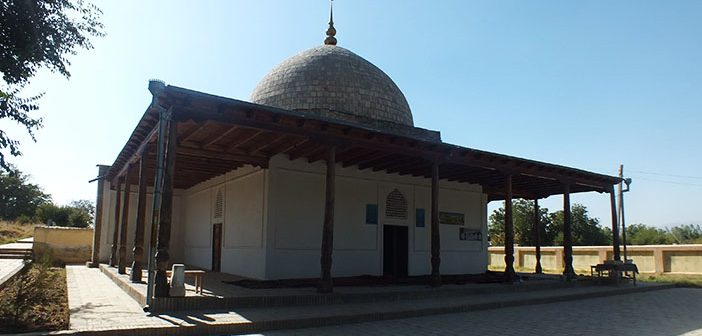
The Types Of Heart In Islam
What are the types of heart in Islam? You can read about the types of hearts in Islam...
In the most general sense, hearts can be classified under three types:
- a- Hearts that maintain their purpose and dignity of creation.
- b- Sealed and dead hearts
- c- Diseased and unmindful hearts.
- a- Hearts that Maintain Their Purpose and Dignity of Creation
These are hearts that have awoken from ignorance through dhikr. Here, the spirit reigns supreme over the ego and the heart is inundated with the light of faith. Persons blessed with hearts of the kind have been effective in fulfilling what they have been called upon in the below ayah:
“O ye who believe! Remember Allah with much remembrance.” (al-Ahzab, 41)
“And remember the name of your Lord and devote yourself to Him with (exclusive) devotion.” (al-Muzzammil, 8)
“Men whom neither merchandise nor selling diverts from the remembrance of Allah and the keeping up of prayer and the giving of poor-rate; they fear a day in which the hearts and eyes shall turn about;” (an-Nur, 37)
In hearts that have acquired such a blend, the manifestation of the Divine names of beauty (jamal) overpowers those of wrath (jalal). People with hearts of this kind attain maturity through embodying the morals of Allah, glory unto Him, the Prophet -upon him blessings and peace- and the Holy Quran. These are hearts that have shed their egoistic tendencies through the grace of the love felt for Allah and His Messenger, hearts for which nothing else matters. Such hearts are referred to in the Quran as a flawless heart (qalb salim), a penitent heart (qalb munib) and a contended heart (qalb mutmain). Accepted in the sight of the Divine, these hearts may be explained as follows:
A flawless heart (qalb salim) is a heart protected or purged from the assaults of the ego. It is the heart given to man, by the Lord, accompanied by a clean predisposition, on the condition that both are protected. The heart may reach this state of refinement only through the Sufi methods known as the purification of the soul and the purification of the heart. The servant is thereby freed from the crass and heavy domination of sins and is ushered to the lightness of spirituality. Just as a myriad of beams that shine onto a lens condense themselves in a single spot to start a fire on the other side, a condensed spirituality in a heart immersed in Divine lights, burns all sins and desires of the ego to ashes. This is a sign of the attainment of a flawless heart, the very heart that will be accepted in the presence of the Real. About this the Quran states: “The day on which property will not avail, nor son. Except him who comes to Allah with a heart free (from evil).” (as-Shuara, 88-89)
Poet Ruhi of Baghdad echoes this in the below couplet:
Think not, merchant, you will be asked for gold or silver for bail,
Only a flawless heart, on a Day when nothing else shall avail…
A penitent heart (qalb munib) is a heart that is constantly turned to the Lord. Liberated from the captivity of mortal interests, it luxuriates in the zests of the eternal land, lovingly and enthusiastically. This heart shivers in the excitement of experiencing the Divine flows of power. The ayah declares: “This is what you were promised, (it is) for everyone who turns frequently (to Allah), keeps (His limits); who fears the Beneficent Allah in secret and comes with a penitent heart” (Qaf, 32-33)
A contented heart (qalb-i mutmain) is a heart that has covered distance towards the perfecting of good morals, under the peaceful shade of iman. Deeds of worship are no longer imitative (taqlidi); they have become comprehended at their core (tahqiqi) and executed in like manner. The heart is illumined through dhikr and the ego has laid down its guns to spirituality. The gem of iman is irremovably entrenched in the heart, the center of spiritual sensing. With a comprehended faith (iman-i tahqiqi) and contentedness, the heart has found peace and stability. The state referred to in the Quran:
اَلاَ بِذِكْرِ اللّٰهِ تَطْمَئِنُّ الْقُلُوبُ
“…Now surely by Allah’s remembrance are the hearts set at rest.” (ar-Rad, 28) is now fully realized. The implicit meaning of this ayah is that hearts distant from the remembrance of Allah, glory unto Him, will forever suffer the pain of their discontent and remain distant from attaining the true peace of mind.
The marks of those who carry one of the three types of hearts mentioned are that they are delicate, compassionate towards creation, content with the given circumstances and provide service in the way of the Truth and the good. Filled with the zest of Divine Love, they flee evil and run to the guidance of others, to the point of shedding tears on their behalf.
The asset needed to ensure that the heart attains to this blend, is genuine prayer and repentance and care to consume only the halal, the permissible. Protecting this asset, on the other hand, is possible only with righteous deeds. Being the human beings we are, it is impossible to steer entirely clear from sins. Yet, since sins reduce the sensitivity of the heart, rendering it spiritually blind and deaf towards the Truth, it is necessary to hold fast to sincere prayer and repentance for the heart to become the focal point of positive manifestations. Not for no reason do lessons of tasawwuf begin with repentance. As stated in the famous Majalla principle: “Repelling mischief is preferable to acquiring benefit.” That is to say, repelling evil has greater priority over obtaining the good.
As regards eating only the halal, Sufis have said: “Allah enlightens the heart of him, who eats only what is halal, and flows the springs of wisdom onto his heart.” Righteous deeds, on the other hand, ensure that the heart keeps possession of the level acquired. The special compliments that come from the Lord are relevant only for those in possession of hearts of this kind, and above these are the lively hearts, endowed with the light of the Lord, which belong to prophets and great saints. As their hearts are revived by Divine Love, they do not look at either this world or the Hereafter, desirously, not even with the corner of their eyes. Allah, glory unto Him, has made prophets and their heirs, scholars and saints, inviters of humankind to darussalam[1] through reviving and helping them lift the veils covering their hearts, encouraging them with moral conduct and sincere deeds of worship and guiding them, thereby, to unite with their Lord (wasl ila-Allah).
The level desired from the salik, the aspirer, at the end this training of the heart, is for his heart to attain to ihsan, which is the consciousness of being with the Lord at all times, and in so doing, earn for himself an ‘alive heart.’
- b- Sealed and Dead Hearts
These are the total opposite of hearts revived through the remembrance of the Lord. The gates of faith are slammed shut for these hearts; they are sealed and dead. They are no different than some graves described as pits from Hellfire. Such hearts are the stark contrast of the hearts of prophets, saints and the righteous. Owners of these hearts, desiring nothing other than pleasures egoistic, see no other purpose in life than to eat, drink and waste their years chasing short-lived ambitions. In terms of their purpose, they are no better off than animals; some are even worse. Allah, glory unto Him, declares:
“Surely Allah will make those who believe and do good enter gardens beneath which rivers flow; and those who disbelieve enjoy themselves and eat as the beasts eat, and the fire is their abode.” (Muhammad, 12)
And in another ayah:
“Or do you think that most of them do hear or understand? They are nothing but as cattle; nay, they are straying farther off from the path.” (al-Furqan, 44)
Reserved only for egoistic ambitions and desires, the lives of such people pass amid an eternal torment. Awaiting them in the Hereafter, on the other hand, is an inexpressible disaster, set to continue until eternity. Such people are oblivious to the mysteries of life, man, and the meaningful patterns embroidered in the universe. Not only are they deviated themselves, they also deviate others over whom they exert influence. Despite living on the property of the Almighty and amid His blessings, they revel in the ungratefulness of denying His existence and violate His commands and prohibitions. Regarding people of the kind, Allah, glory unto Him, states:
“Does not man see that We have created him from the small seed? Then lo! he is an open disputant. ” (Yasin, 77)
“Deaf, dumb (and) blind, so they will not turn back.” (al-Baqara, 18)
“Surely you do not make the dead to hear, and you do not make the deaf to hear the call when they go back retreating. Nor can you be a guide to the blind out of their error; you cannot make to bear (any one) except those who believe in Our communications, so they submit.” (an-Naml, 80-81)
That the hearts of such persons are sealed and locked is a fact established by the Quran:
خَتَمَ اللّٰهُ عَلٰى قُلُوبِهِمْ وَ عَلٰى سَمْعِهِمْ وَ عَلٰى اَبْصَارِهِمْ غِشَاوَةٌ
وَ لَهُمْ عَذَابٌ عَظِيمٌ
“Allah has set a seal upon their hearts and upon their hearing and there is a covering over their eyes, and there is a great punishment for them.” (al-Baqara, 7)
This is a Divine mystery and wisdom profound enough to leave entire humankind in tremor. As the human being has a share of the Divine names Hadi, the Guider, and Mudill, the Disgracer, it is unthinkable for someone’s heart to be sealed by Divine Will in the absolute sense and have the gates of guidance shut on him while still alive. For these gates were not shut even on Omar -Allah be well-pleased with him-, who had set out with the callous intent of murdering the Prophet -upon him blessings and peace- or Wahshi, the murderer of Hamza -Allah be well-pleased with him- or even Hind who viciously mutilated his corpse and sunk her teeth into his liver.
Although the Quran makes mention of people whose hearts have been sealed, it is impossible to identify them, one-by-one, in everyday life, as the condition in which people will die remains a mystery. Like the Pharaoh’s magicians, there are some who lead a deviated life only to find guidance in their final years, just as there are some who lead a guided life yet end up among the deviated, as were the cases of Qarun and Balaam ibn Baura.
The point that requires attention here is that the persons mentioned by the Quran as having sealed hearts are mostly among those who engage in sins like oppression (zulm), disbelief (kufr) and perversity (fisq). The Quran states on twenty-six occasions that “Allah will never lead to guidance”, those who possess these characteristics. Twelve of these are in reference to oppressors, eight to disbelievers, and six to the perverse. The door of guidance, however, is still open to those who abandon these sins and turn to the Lord with a genuine heart.
As for those who adamantly continue their wicked ways; they are the most miserable of all, sentenced to the greatest punishment on Earth by having their hearts sealed while still alive and breathing. Although the fact that the Quran mentions these three sins in tandem with being deprived from guidance does provide us with a clue as to the secret behind the sealing of hearts, it is best to leave the truth of it to the Almighty. However, we can infer from here the need to show greater care in avoiding these three sins. We avoid plunging deeper into the issue here, as the mystery of fate, owing to many underlying wisdoms, has been kept secret and probing it has therefore not been recommended.
Whatever the underlying wisdom of it may be, an incontestable truth still stands: hearts that have been sealed and locked are closed to the Truth and the good, and belong to those who have severed all ties with humaneness and spirituality. The only Power that could lift the seal and break the lock of their hearts is the Lord, whom they have long forgotten. Warning us, His servants, against falling into such irreparable neglect, Allah, glory unto Him, reminds: “And be ye not like those who forgot Allah; and He made them forget their own souls! Such are the rebellious transgressors!” (al-Hashr, 19) Underlined here is the fact that those who have forgotten the Lord lack the force to be conscious of even their own selves.
Because of their bestial and egoistic desires, hearts which are blinded to the truth either reject offhand the recipes of salvation and flames of guidance extended to them by prophets and saints or turn a cold shoulder to them. They deceptively console themselves by visualizing a make-believe world where there is no death and the Hereafter and try to find comfort therein. Just as bats naturally enjoy the dark, these kinds of people take misery for happiness, dominated by the negativities inherent in their characters. Their bodies are a burden on them, reminiscent of a couplet of poet Mehmed Akif:
Faith is that gem…and Lord, what great weight it is,
A rusted heart devoid of faith, a burden on the chest it is
Those who are bogged in the swamp of the ego will surely be awaken to the realm of reality with the tremendous quakes of the final moment of life and the fiery blows of the angel of death. Yet, it will serve them no benefit, as the period given the son of Adam to awake ceases the moment he sees the angel of death right before him. With that moment, the opportunity is forever lost. Remorse at that moment is too little too late, just like the belated acceptance of the Pharaoh and his subsequent prostration whilst in the throes of death. The doom awaiting such people thereafter is the lap of the raging flames of Hellfire, whose appetite for destruction only increases the more it is fed.
- c. Diseased and Unmindful Hearts
They stand at the middle point between hearts that are alive and hearts that are dead. Their conditions resemble the painful lives of those suffering from illness. Neither do they have harmony in life nor inner peace. Their inner instability reflects negatively onto their outer existence and the disharmony of their outer existence takes its toll on their inner stability. The disorder in their minds reflects onto their behavior and actions. Such diseased hearts, which stagger amid the whirlpools of doubt, indecision and inconsistency, are always under the threat of falling into immorality, owing to their ignorance, lust and nagging desires. About them, the Almighty states: “In their hearts is a disease; and Allah has increased their disease: And grievous is the penalty they incur, because they are false to themselves.” (al-Baqara, 10)
Stemming from an inability to land on the branch of truth, doubt is the disease that deprives one from a spiritual life and smites the heart with pangs of death. Again, lack of a consistency of faith that would bring the heart satisfaction afflicts them with the constant illness of unrest.
Ignorance is an utter blindness and a painful, dark road that does not allow one even to realize the pain of being deprived from the Truth. This disease spreads to their entire existence, steering them to walk a path that ends in absolute defeat and disaster.
Lust and desire is the disease of insatiability that seizes total control of the heart, as a result of it losing its refined nature and becoming unresponsive. It is a delirious obsession that will come to rest only under the dark soil of the grave, beneath the dense cypress shade.
Immorality is the spiritual cancer of the heart. If treated in time, Allah willing, it can be cured.
Hardness is another terrifying disease of the heart: the indifference to humane emotions and the delicate touches of spiritual reflections. These hearts know nothing of obeying; they play deaf to the sounds of guidance and have no notion of mercy and compassion. Even stones are softer, warmer and lovelier than these hearts, as stated by the Almighty in the Quran: “Then your hearts hardened after that, so that they were like rocks, rather worse in hardness; and surely there are some rocks from which streams burst forth, and surely there are some of them which split asunder so water issues out of them, and surely there are some of them which fall down for fear of Allah, and Allah is not at all heedless of what you do.” (al-Baqara, 74)
As can be gathered from the ayah, hardheartedness is a natural outcome of forgetting the Lord and falling distant, for too long, from Divine truths. The Almighty says, in another ayah: “What! Is he whose heart Allah has opened for Islam so that he is in a light from his Lord (like the hard-hearted)? Nay, woe to those whose hearts are hard against the remembrance of Allah; those are in clear error.” (az-Zumar, 22)
Deeds offered with diseased and unmindful hearts lose their value in the sight of the Lord. Without the light of the Truth, hearts become blind, unresponsive. They can no longer recognize the innumerable patterns and signs of the universe that reveal Divine mysteries. Allah, glory unto Him, declares: “Have they not travelled in the land so that they should have hearts with which to understand, or ears with which to hear? For surely it is not the eyes that are blind, but blind are the hearts which are in the breasts.” (al-Hajj, 46) An insightful gaze thus stimulates the heart. The window of the eye is of no benefit unless it looks with the light of the heart, as it is impossible to behold a clear vision behind a foggy window.
Even the small diseases of the heart, often overlooked, can cause the heart irreparable damage and even its death. Therefore, it is necessary to safeguard hearts with a diligent faith and submit it to the Will of the Lord. No-one other than the Lord will guide and steer a person who has fully submitted to the Creator. The below hadith beautifully expresses the necessity of protecting the heart:
أَلاَ وَإِنَّ فِى الْجَسَدِ مُضْغَةً إِذَا صَلَحَتْ صَلَحَ الْجَسَدُ كُلُّهُ
وَإِذَا فَسَدَتْ فَسَدَ الْجَسَدُ كُلُّهُ أَلاَ وَهِىَ الْقَلْبُ
“Be aware that there is a piece of flesh inside the body; if good so is the entire body and if corrupted, so is the entire body. And that is the heart!” (Bukhari, Iman, 39)
The world is the Lord’s valley of trial and error. There blow on it various winds of trial, dragging the heart from one place to another.
Protecting the heart is necessary to prevent the heart from being swept away, like a dry leaf, before the assorted winds of events, which naturally blow as a result of the world being a land of trial. What is required is to submit the heart to the sweet zephyrs that breeze from the way of the Lord’s Divine aid and support; and this is possible only by seeking refuge in Him, obeying and submitting to His commands and prohibitions.
The heart is like lucid water. But once muddied with evil deeds and sins it becomes murky. It then becomes necessary to distill it, for it to show the pearls of spirituality and the lights of truth in its bedrock.
[1] Darussalam: Paradise.
Source: Osman Nuri Topbaş, Sufism, Erkam Publications
SIMILAR ARTICLES
- WHAT IS ISLAM?
- THE FAMİLY TREE OF PROPHET MUHAMMAD SAW
- THE ESSENTIALS OF ISLAMIC FAITH
- FREE İSLAMİC BOOKS READ AND DOWNLOAD PDF
- MORALITY IN ISLAM














